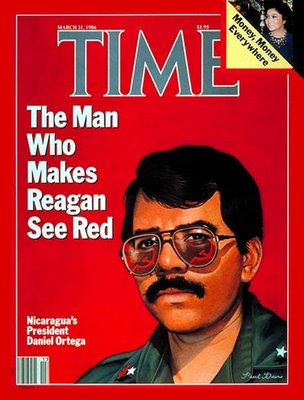Organisation of American States decides to readmit Cuba.
 It would appear as if, despite all evidence to the contrary, the world is sometimes capable of good sense:
It would appear as if, despite all evidence to the contrary, the world is sometimes capable of good sense:
After almost fifty years, the Cold war reaction to Cuba is beginning to thaw.The Organisation of American States tonight lifted Cuba's half-century-old suspension in a dramatic decision to bring Havana back into Latin America's diplomatic fold.
The pan-regional body rebuffed the United States, which lobbied against the move, and revoked a 1962 cold war measure which had marked the communist island as a pariah.
"The cold war has ended this day in San Pedro Sula," said Manuel Zelaya, the president of Honduras, who hosted the 34-member organisation in Honduras's second city.
Dozens of foreign ministers from the Caribbean as well as central and South America stood to applaud when the announcement was made at the end of the two-day summit. "This is a moment of rejoicing for all of Latin America," Ecuador's foreign minister, Fander Falconi, told reporters.
Cuba said it had no interest in rejoining the OAS, which Fidel Castro this week called a "Trojan horse" for US interests, but the opening of the door was a diplomatic victory for Havana and exposed Washington's isolation.
Most of Latin America, after eight years of Bush and the neo-cons, is now more leftist than at any other time in history, so we shouldn't really be surprised at this taking place at this moment in time.
But it's extremely welcome nevertheless.
There is great goodwill towards Obama from Latin America, but only because they hope that he will be the agent of change which he promised to be."The vote to readmit Cuba to the OAS represents an unprecedented assertion of Latin American power in a hemispheric institution long dominated by the US," said Daniel Erikson, an analyst at the Inter-American Dialogue thinktank and author of The Cuba Wars.
Washington recently softened its economic embargo against Cuba - a controversial policy enshrined the same year the OAS suspended the fledgling Castro government - but that was not enough to appease Latin leaders demanding bolder steps.
"The vote sends a powerful signal to the Obama administration that the path of moderate, incremental change in US policy towards Cuba is depleting America's political capital in the region at an alarming rate," said Erikson.
Latin leaders gave Obama a rapturous reception at an April summit in Trinidad and Tobago, his regional debut, but today's decision showed a steely resolve to stand up to the "gringo" superpower which is considered to have bullied the region for over a century.
This vote shows the kind of change that they hope to witness. Obama has often reminded us that it is a form of madness to keep doing the same thing and expecting a different outcome. Nowhere has that flawed policy been more evident than in the US's reaction to Cuba.
The policy hasn't worked for fifty years. Even longer than the US's failed policy towards Iran.
Latin America is now telling Obama that it is time for change.
Click title for full article.




























